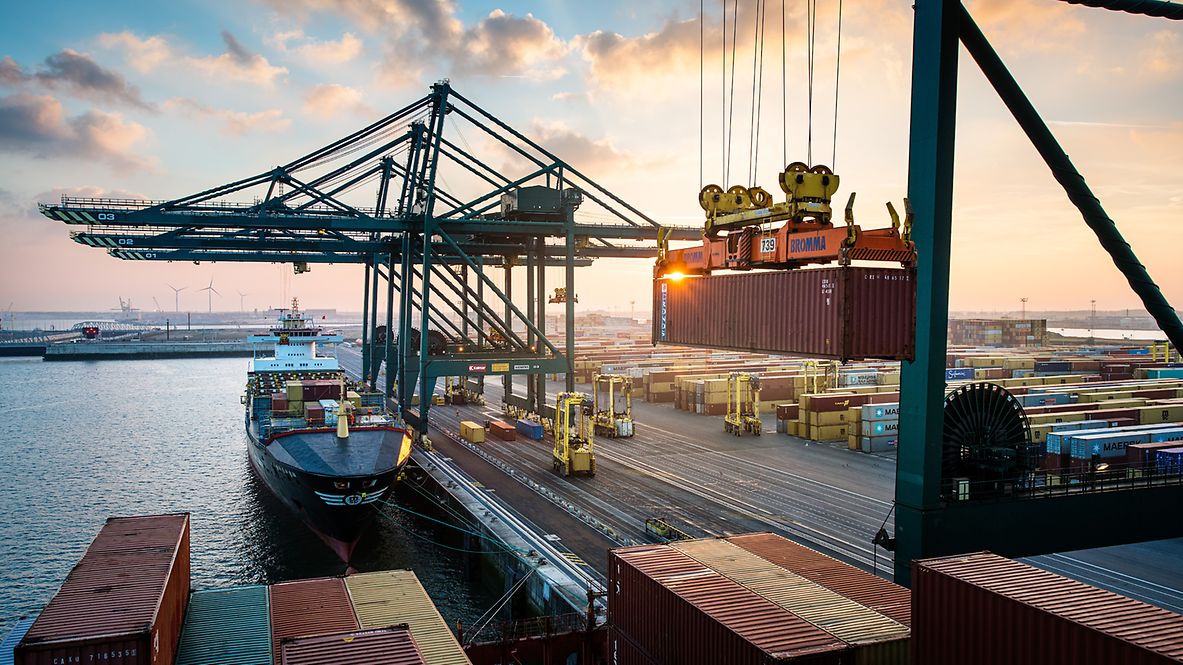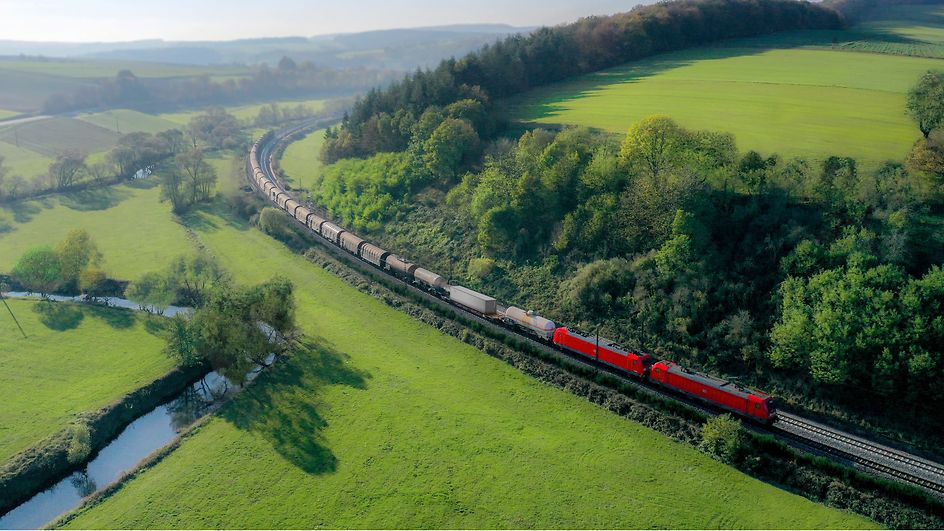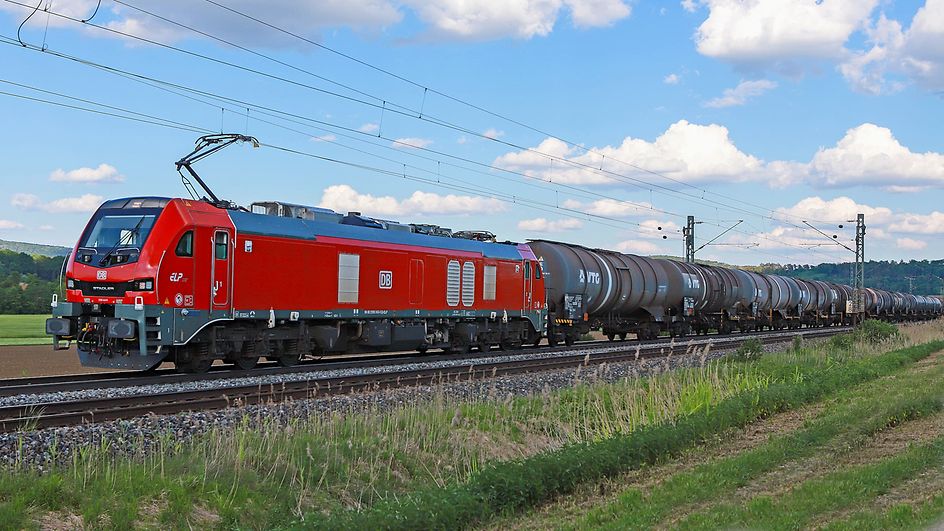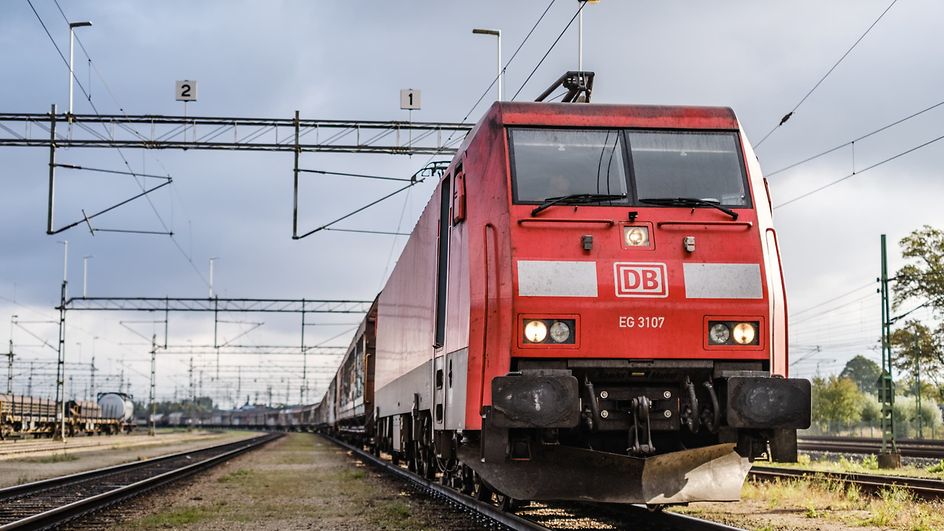Article: Customs in transition: What rail freight transport needs to know now
Since Donald Trump entered the White House, the topic of "tariffs" has been increasingly present in the media. The effects of these geopolitical developments on global trade and the economy are diverse and often unpredictable. But how does this issue affect rail freight transport?
In an exclusive interview, Cristian Cuenca, Senior Specialist Customs at DB Cargo AG, comments on the current challenges facing rail freight transport in connection with tariffs and international trade barriers. He discusses the impact of geopolitical conflicts, the role of digital solutions and the challenges posed by new legislation.
Interview with Cristian Cuenca on the current challenges in the customs sector
Mr. Cuenca, since Donald Trump took office, the topic of "tariffs" has been in the headlines again and again. How are these geopolitical developments affecting rail freight transport?
Cuenca: Trade conflicts do not have a direct impact on customs processes in rail freight transport. As a rule, we don't transport our own goods, but those of our customers. It is usually the parties to the trade transaction who declare the export or import and are therefore directly affected by an increase in customs duties. However, we notice the impact of trade conflicts indirectly, for example if the flow of goods decreases or shifts to other countries, which then reduces the transport volume.
And how do customs duties affect logistics processes in rail freight transport? Do they affect the speed and cost of transportation?
Cuenca: An import into the EU must be declared anyway, regardless of the level of a customs duty. The levying of new or increased customs duties therefore has no direct impact on logistics processes. Transit procedures that are declared electronically are of particular importance for logistics processes. These procedures basically eliminate the need for a border stop for the import declaration, meaning that transportation can be carried out directly to the recipient in the hinterland.
What do companies need to bear in mind when traveling across borders - especially when it comes to special customs requirements for international rail freight transport?
Cuenca: It is important to know that transports of EU goods are only relevant to customs duties if they take place across EU borders, such as the transportation of German goods to the UK or Switzerland. Within the EU, the transportation of goods originating outside the EU is subject to customs duties, such as the delivery of duty unpaid goods from China that are transported via the port of Hamburg to Munich or Paris.
What are currently the biggest challenges in the customs area for rail freight transport?
Cuenca: One of the biggest challenges was the legal abolition of the "simplified rail shipping procedure" (vgVV), which was both rail- and customer-friendly. We at DB Cargo AG reacted early and have been offering alternative customs services since 2023, which have been well received on the market, such as the NCTS shipping procedure from German seaports in combined transport. Next on the agenda are changes to import customs clearance in Switzerland, which must be implemented by the second quarter of 2026. These adjustments are quite complex due to the stakeholders involved, even if they don't sound like much at first glance.
What role do digital systems, such as NCTS, play in customs clearance and how do these solutions affect efficiency?
Cuenca: Electronic systems such as the NCTS play a decisive role, as they make customs clearance considerably more efficient. The electronic declaration eliminates the need to go to customs and also the manual stamping of consignment notes. Interfaces to order or other upstream systems make it possible to automatically transfer data for the customs declaration, which saves an enormous amount of time. If companies like us also have certain authorizations for further simplifications, customs declarations can even be made outside regular customs opening hours.
Could new trends or developments in the area of customs clearance change rail freight transport in the long term?
Cuenca: The abolition of the paper-based vgVV was one such development. NCTS shipping procedures now also offer the option of dispensing with the Transit Accompanying Document in paper form. This step away from paper handling is a clear step forward and relieves the burden on our colleagues.
In conclusion: What best practices can you recommend to companies to make their customs processes more efficient and avoid delays?
Cuenca: The best strategy is to ensure high data quality while automating as many processes as possible. Good colleagues and competent contacts at the parties involved in the logistics process are also important. If these factors are right, companies can design their customs processes efficiently and avoid delays.
Thanks to Cristian Cuenca for the open discussion and the clear insights on the subject of customs duties.
CONCLUSIONS
Customs duties do not usually affect rail freight transport directly, but can have a noticeable impact due to changes in trade routes and regulatory framework conditions. Those who digitalize processes, implement new requirements early on and take a proactive approach to customs can minimize risks - and take advantage of opportunities.



